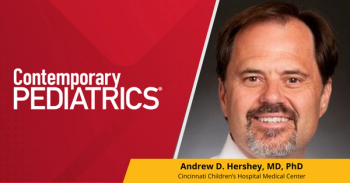
- September 2021
- Volume 38
- Issue 9
Long-term video EEG monitoring has range of benefits in epilepsy
For monitoring epilepsy, long-term monitoring can be effective without requiring the time and cost of a hospital stay.
Long-term video electroencephalogram monitoring (LVEM) is beneficial not only from a medical perspective but also is helpful for children with epilepsy and their families, even when patients are ineligible for epilepsy surgery, according to study findings. The retrospective study, conducted in Germany, included 163 patients who underwent LVEM sessions with a mean duration of 5.4 days. LVEM confirmed a diagnosis of epilepsy in 147 patients (90.2%) and excluded the diagnosis in 16 (9.2%). Overall, LVEM results altered the diagnosis of 37.4% of patients, 20.8% of presurgical patients, and 52.3% of those not slated for surgery. In 64% of patients deemed ineligible for surgery, the clarification of epilepsy syndromes through LVEM resulted in medication adjustments. Three months after undergoing LVEM or surgery, 81 patients (45.4%) reported having either no or fewer seizures. In response to a questionnaire, three-quarters of families indicated that they considered LVEM helpful, with 45.8% reporting that the patient’s illness had improved since undergoing the monitoring.
Thoughts from Dr. Farber
The pandemic has forced us to reconsider the value of some hospital stays. Here is another area where home appears to be better: lower cost, less stress for families, and a longer period of monitoring are 3 obvious benefits, without apparently sacrificing quality.
Reference
1. Mann C, Willems LM, Leyer AC, et al. Benefits, safety and outcomes of long-term video EEG monitoring in pediatric patients. Eur J Paediatr Neurol. March 10, 2021. Epub ahead of print. doi:10.1016/j.ejpn.2021.03.006
Articles in this issue
over 4 years ago
A new school year, but safety firstover 4 years ago
The future of the pediatric practiceover 4 years ago
An adolescent female with abdominal pain and tachycardiaover 4 years ago
Croup in the COVID-19 eraover 4 years ago
Kangaroo care in the neonatal intensive care unitover 4 years ago
Diffuse erythematous rash in a healthy, afebrile infantover 4 years ago
Obesity in children and the impact of COVID-19over 4 years ago
Fall allergies: Medications remain stable, but a lot has changedover 4 years ago
Kingella kingae most often causes acute septic arthritisNewsletter
Access practical, evidence-based guidance to support better care for our youngest patients. Join our email list for the latest clinical updates.






